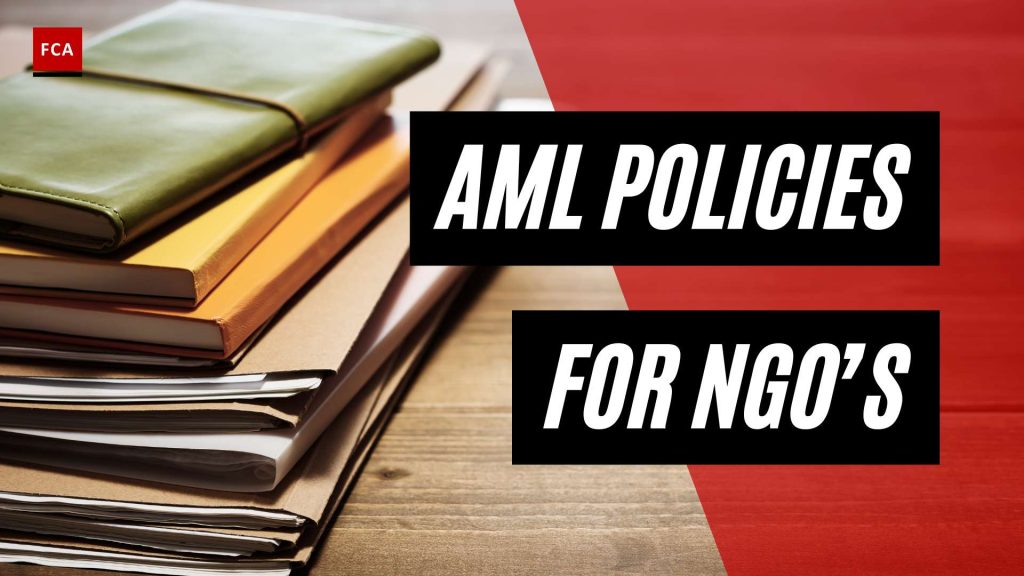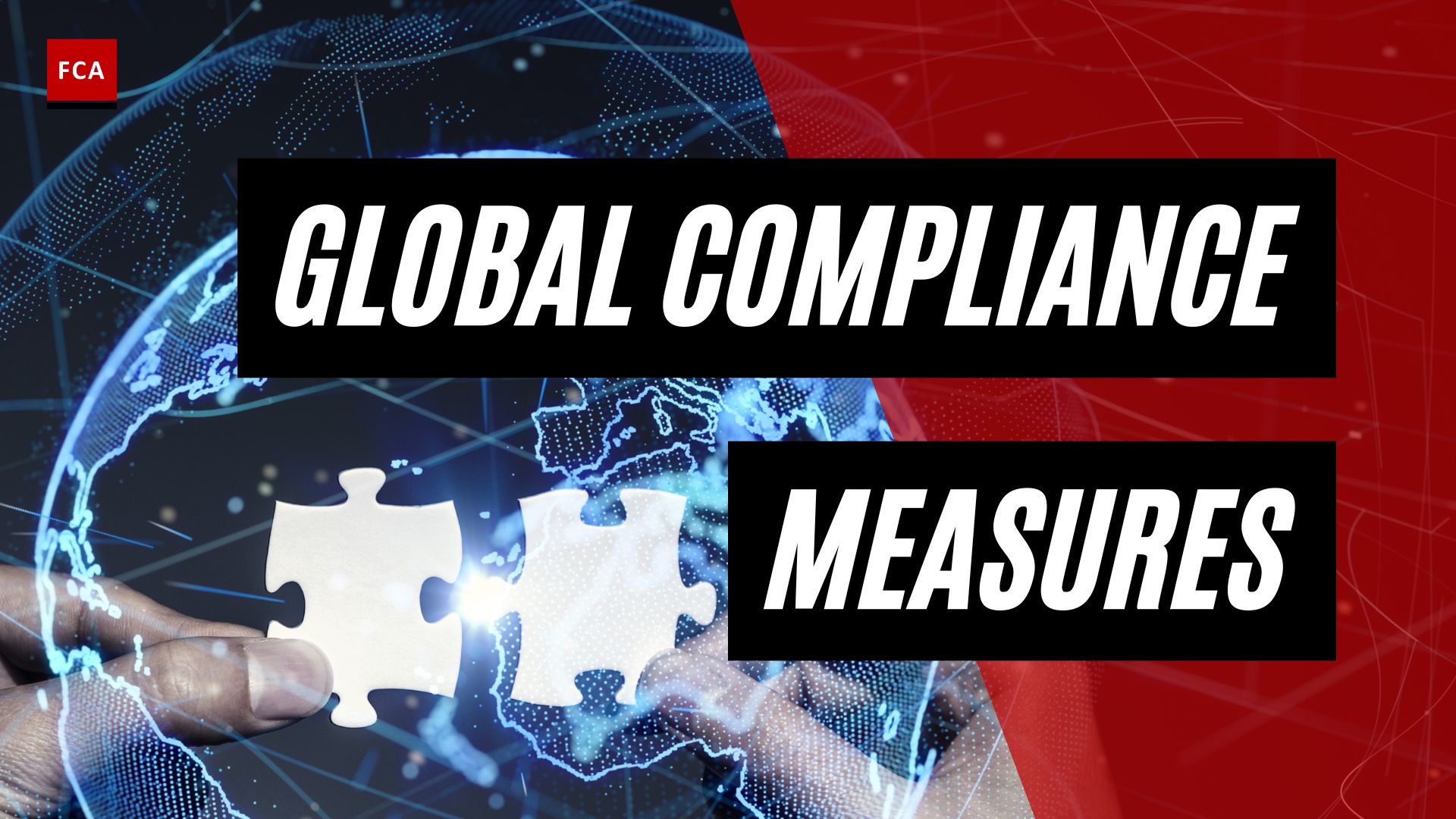Understanding AML Compliance for NGOs
To safeguard their integrity and ensure ethical practices, non-governmental organizations (NGOs) must adhere to Anti-Money Laundering (AML) compliance procedures. AML procedures are designed to prevent the generation of income through illegal activities by implementing measures to detect and deter money laundering and terrorist financing activities. This section provides an introduction to AML compliance and highlights the importance of AML procedures for NGOs.
Introduction to AML Compliance
AML compliance refers to the processes and practices that organizations, including NGOs, implement to prevent and detect money laundering and the financing of terrorism. Money laundering involves disguising the origins of illegally obtained funds and integrating them into legitimate financial systems. It is a global issue that poses serious threats to the integrity of financial systems and the overall stability of economies.
For NGOs, which often handle significant amounts of funds, implementing robust AML procedures is crucial to ensure that their resources are not derived from illegal activities such as terrorism or illicit drug sales. By establishing effective AML compliance measures, NGOs can protect their reputation, maintain the trust of donors and stakeholders, and contribute to the overall fight against money laundering.
Importance of AML Compliance for NGOs
NGOs, particularly those operating internationally, are at risk of being used as conduits for moving illicit funds due to their widespread operations and sometimes limited oversight. This makes it essential for NGOs to implement stringent AML procedures to mitigate these risks. By establishing and following AML compliance measures, NGOs can:
- Minimize the risk of unknowingly becoming involved in money laundering or terrorist financing activities.
- Safeguard the integrity and reputation of the organization by demonstrating a commitment to ethical practices.
- Comply with legal and regulatory requirements related to AML, ensuring adherence to regional and international standards.
- Protect the organization’s resources and assets from being misused or diverted for illicit purposes.
- Maintain the trust and confidence of donors, beneficiaries, and other stakeholders by ensuring the transparent and accountable use of funds.
To effectively implement AML procedures, NGOs should conduct due diligence on donors, monitor transactions for suspicious activities, and maintain detailed records of financial transactions. By doing so, NGOs can contribute to the global efforts in combating money laundering and terrorist financing activities.
In the following sections, we will delve deeper into the specific AML procedures for NGOs, the risks and reputational considerations they face, and the implementation of effective AML procedures to ensure compliance and integrity.
AML Procedures for NGOs
To ensure compliance with anti-money laundering (AML) regulations and mitigate the risk of being involved in illicit activities, NGOs must implement robust AML procedures. These procedures encompass due diligence on donors, transaction monitoring and reporting, as well as record-keeping and documentation.
Due Diligence on Donors
Conducting due diligence on donors is a crucial step for NGOs in their AML procedures. This process involves verifying the identity of donors and assessing the potential risks associated with their contributions. Due diligence measures aim to determine the true purpose and objectives of the organization, identify its locations, understand its organizational structure, and analyze the volunteer and donor base. Additional measures are required for operations in high-risk countries (Sanctions.io).
By implementing comprehensive due diligence procedures, NGOs can better identify and assess potential risks associated with donors, ensuring that funds received are from legitimate sources and not connected to money laundering or terrorist financing activities.
Transaction Monitoring and Reporting
Transaction monitoring and reporting play a crucial role in detecting and reporting suspicious activities within NGOs. It involves closely monitoring financial transactions and identifying any unusual patterns or red flags that may indicate illicit activities. NGOs should have AML procedures and training in place to educate volunteers and officers on identifying these red flags. This could include changes in donor behavior, unusual activities, or transactions that deviate from the organization’s normal patterns (Sanctions.io).
When suspicious activities are detected, NGOs are obligated to report them to the relevant authorities. Reporting entities (REs) and employees of REs must report suspicious transactions under the applicable AML regulations and associated laws. NGOs should familiarize themselves with the reporting requirements and ensure timely submission of suspicious transaction reports (STRs) to the appropriate authorities (FINTRAC).
Record-Keeping and Documentation
Transparent and consistent record-keeping practices are vital for NGOs to maintain in their AML procedures. Detailed records of financial transactions, including the receipt and spending of funds, should be maintained to ensure compliance with AML regulations. This documentation is essential to demonstrate transparency and accountability, as well as to provide evidence of due diligence and reporting efforts.
By documenting suspicious activities, transactions, and financial records, NGOs can demonstrate that they are not involved in illicit activities and can provide evidence of their compliance with AML regulations. These records may be required for internal audits, regulatory inspections, or investigations.
Implementing and adhering to these AML procedures is crucial for NGOs to safeguard their integrity, protect themselves from reputational risks, and ensure compliance with the regulations aimed at combating money laundering and terrorist financing activities.
Risks and Reputational Considerations for NGOs
When it comes to the operations of non-governmental organizations (NGOs), it is essential to consider the risks and potential reputational issues associated with money laundering. Implementing robust anti-money laundering (AML) procedures is crucial for safeguarding the integrity of NGOs and protecting them from being exploited for illicit financial activities.
Money Laundering Risks for NGOs
NGOs, especially those operating internationally, can be vulnerable to being used as conduits for moving illicit funds due to their widespread operations and sometimes limited oversight. Criminals may attempt to exploit the complex flow of funds within NGOs, making them susceptible to abuse by money launderers and terrorists (Investopedia). To mitigate these risks, NGOs must implement stringent AML procedures.
By adhering to AML regulations, NGOs can prevent legitimate entities from being unknowingly involved in illegal activities. AML regulations for NGOs focus on due diligence measures, transparent and consistent record-keeping, and the establishment of effective AML procedures (Sanctions.io). These measures help identify and prevent the concealment or diversion of funds, ensuring that NGOs maintain their integrity and fulfill their mission without unknowingly facilitating money laundering activities.
Reputational Risks for NGOs
Beyond legal compliance, NGOs must be aware of the potential reputational risks associated with being involved in money laundering activities. The reputation and integrity of an NGO are paramount to its ability to attract donors, secure funding, and maintain public trust. Any association with money laundering can severely damage an NGO’s reputation and hinder its ability to carry out its mission effectively (Investopedia).
To protect their reputation, NGOs must implement robust AML procedures. By doing so, they demonstrate their commitment to transparency, accountability, and responsible financial management. NGOs should have AML procedures and training in place to educate volunteers and officers on identifying red flags associated with suspicious transactions, changes in donor behavior, or unusual activities that could indicate the diversion of funds or abuse of programming.
By implementing effective AML procedures and maintaining compliance with regulatory requirements, NGOs can mitigate the money laundering risks they face. This not only helps protect the organization from legal repercussions but also safeguards its reputation and ensures that it can continue its important work in a transparent and accountable manner.
Implementing Effective AML Procedures for NGOs
To ensure compliance with Anti-Money Laundering (AML) regulations and safeguard the integrity of their operations, NGOs must implement effective AML procedures. These procedures include staff training and education, regular audits and reviews, and compliance with regulatory requirements.
Staff Training and Education
A crucial aspect of implementing effective AML procedures for NGOs is providing comprehensive training and education to staff members. This training should focus on recognizing and reporting suspicious activities, understanding the organization’s AML policies and procedures, and staying updated on the latest AML regulations and guidelines.
By educating staff members, NGOs empower them to identify red flags associated with suspicious transactions, changes in donor behavior, or unusual activities that could indicate the diversion of funds or abuse of programming. Training should emphasize the importance of timely reporting and the role each staff member plays in maintaining the organization’s integrity.
Regular Audits and Reviews
Regular audits and reviews are essential components of effective AML procedures for NGOs. These audits help identify any gaps or weaknesses in the organization’s AML controls and provide an opportunity to implement corrective measures.
Audits should encompass a comprehensive assessment of the NGO’s financial systems, record-keeping practices, and transaction monitoring processes. The goal is to ensure that AML procedures are being followed consistently and that any suspicious transactions or activities are promptly identified and reported.
By conducting regular audits, NGOs can proactively detect and address potential vulnerabilities, reducing the risk of involvement in illicit financial activities.
Compliance with Regulatory Requirements
NGOs must remain informed and compliant with the evolving regulatory landscape related to AML and Counter-Terrorist Financing (CTF). Regulations and guidelines specific to the regions where NGOs operate can vary, making it crucial for organizations to stay abreast of the legal requirements.
Compliance with regulatory requirements involves implementing policies and procedures that align with the applicable laws and regulations. NGOs should establish transparent and consistent record-keeping practices to document suspicious activities, transactions, financial records, as well as the receipt and spending of funds. This documentation helps ensure visibility, accountability, and the prevention of involvement in illicit activities.
By adhering to regulatory requirements, NGOs demonstrate their commitment to combating money laundering and terrorist financing, while also mitigating the risk of reputational damage.
Implementing effective AML procedures is essential for NGOs to secure donations while safeguarding their integrity. By providing staff training and education, conducting regular audits and reviews, and ensuring compliance with regulatory requirements, NGOs can enhance their ability to detect and prevent illicit financial activities. These procedures help maintain the trust of donors, regulators, and the public, ensuring that NGOs continue to make a positive impact in their communities.
Red Flags and Indicators for AML in NGOs
To effectively combat money laundering and protect the integrity of NGOs, it is essential to be aware of the red flags and indicators that can signal potential illicit financial activities. By recognizing these warning signs, NGOs can implement robust anti-money laundering (AML) procedures to mitigate the risks associated with money laundering. Here are three key red flags to watch out for:
Frequent Cross-Border Money Transfers
Frequent cross-border money transfers to different accounts can be a red flag for money laundering. Criminals often exploit this tactic to avoid detection from authorities by moving money between accounts in different countries. These transfers can be conducted rapidly and in large amounts, making it challenging to trace the origin and purpose of the funds. NGOs should exercise caution when encountering frequent cross-border transfers and conduct thorough due diligence to ensure the legitimacy of the transactions (Sigma360).
Unusual Transaction Patterns
Unusual transaction patterns (UTPs) that deviate from a customer’s typical behavior can indicate potential money laundering activities. NGOs should be vigilant in identifying transactions that exhibit no clear economic purpose, sudden increases in customer activity, or transactions that are significantly different from the customer’s usual financial behavior. These deviations from the norm may suggest attempts to disguise the illicit origin of funds. To effectively detect and address UTPs, NGOs should implement robust transaction monitoring systems and promptly investigate any suspicious activities (Sigma360).
Use of Shell Companies
The use of shell companies with complex ownership structures can raise red flags for money laundering. While there may be legitimate reasons for setting up shell companies, money launderers exploit the lack of ownership transparency to conceal the flow of illegal funds. NGOs should exercise caution when dealing with transactions involving shell companies and conduct thorough due diligence to identify the ultimate beneficial owners (UBOs). Any discrepancies or inconsistencies in UBO information should be investigated further to ensure compliance with AML regulations.
By being aware of these red flags and indicators, NGOs can enhance their AML procedures and reduce the risks associated with money laundering. It is crucial for NGOs to remain vigilant in monitoring transactions, conducting due diligence on donors, and promptly reporting any suspicious activities to relevant authorities. Implementing robust AML procedures and staff training can significantly contribute to safeguarding the integrity of NGOs and maintaining compliance with regulatory requirements.
Reporting and Regulatory Obligations for NGOs
Ensuring compliance with reporting and regulatory obligations is a crucial aspect of AML procedures for NGOs and plays a vital role in safeguarding the integrity of their operations. In this section, we will explore the key components of reporting and regulatory obligations for NGOs, including reporting suspicious transactions, understanding suspicious transaction reports (STRs), and timely submission of STRs.
Reporting Suspicious Transactions
NGOs must have robust procedures in place to identify and report suspicious transactions. If an employee of an NGO believes that a financial transaction is related to the commission or attempted commission of a money laundering or terrorist financing offense, they are obligated to report it. Reporting entities (REs) and their employees must report these transactions under the Proceeds of Crime (Money Laundering) and Terrorist Financing Act (PCMLTFA) and associated regulations. If an employee suspects that their employer has not submitted a suspicious transaction report, they are expected to report it to the appropriate regulatory authority, such as the Financial Transactions and Reports Analysis Centre of Canada (FINTRAC).
Understanding Suspicious Transaction Reports
A suspicious transaction report (STR) is a type of report that must be submitted to the regulatory authority, such as FINTRAC, if there are reasonable grounds to suspect that a financial transaction is related to the commission or attempted commission of a money laundering or terrorist financing offense. STRs provide additional information, such as nicknames, secondary names, beneficial ownership information, and background details. These details are used by regulatory authorities in their analysis and production of financial intelligence disclosures. It is important to note that the threshold for submitting an STR is reasonable grounds to suspect (RGS), meaning that there is a possibility that a money laundering or terrorist financing offense has occurred. The focus is on establishing suspicion rather than verifying facts or proving the offense (FINTRAC).
Timely Submission of STRs
Timely submission of STRs is crucial to meet regulatory obligations and facilitate effective analysis by regulatory authorities. NGOs must submit STRs to the appropriate regulatory authority, such as FINTRAC, as soon as practicable after completing the measures to establish reasonable grounds to suspect a transaction is related to a money laundering or terrorist financing offense. Delayed submission of STRs may raise questions and scrutiny from regulatory authorities. Therefore, NGOs should have well-defined internal processes to ensure the timely submission of STRs to the appropriate regulatory authority (FINTRAC).
By adhering to reporting and regulatory obligations, NGOs can contribute to the global efforts in combating money laundering and terrorist financing activities. The timely reporting of suspicious transactions, understanding the components of suspicious transaction reports, and ensuring their timely submission are essential in maintaining the integrity of NGOs and their operations. NGOs should stay informed about the specific reporting requirements and obligations in their jurisdiction to ensure full compliance with AML regulations.
Challenges and Solutions in AML Compliance for NGOs
Ensuring effective Anti-Money Laundering (AML) compliance for NGOs poses unique challenges that require careful consideration. Addressing these challenges is crucial to safeguard the integrity and reputation of these organizations. In this section, we will explore three key challenges that NGOs face in AML compliance and discuss potential solutions.
Jurisdictional Variances and Compliance
NGOs operating in different regions must navigate the complexities of jurisdictional variances in AML regulations and compliance requirements. Laws related to AML and Counter-Terrorist Financing (CTF) can vary from country to country, making it essential for organizations to stay informed and compliant with the evolving regulatory landscape. NGOs should proactively monitor and understand the AML regulations specific to the regions where they operate. This includes keeping track of changes in legislation, reporting obligations, and any additional requirements imposed by local authorities. By maintaining a robust understanding of jurisdictional variances and engaging legal counsel when necessary, NGOs can ensure compliance with AML regulations. To learn more about AML regulations for NGOs, visit our article on AML regulations for NGOs.
Resource Allocation and Risk Assessment
Resource allocation and risk assessment are critical aspects of effective AML compliance for NGOs. Current AML programs often focus more on technical processes than their overall effectiveness. National supervisors may prioritize technical processes without allocating sufficient resources to prevent financial crime, improve risk assessment systems, or identify its origin. To address this challenge, NGOs must allocate appropriate resources to develop and maintain robust AML procedures. This includes investing in skilled personnel, technological solutions, and ongoing training programs. Conducting thorough risk assessments enables NGOs to identify and mitigate potential risks, ensuring that resources are allocated effectively to manage AML risks. By prioritizing resource allocation and risk assessment, NGOs can enhance their AML compliance efforts and minimize the risk of illicit financial activities.
Impact of De-risking and Financial Exclusion
De-risking, triggered by failures to detect counterparty risk at scale, has led to financial institutions withdrawing from certain markets. This has had negative consequences, reducing competition and choice for customers while shifting financial crime risks to non-bank financial institutions (NBFIs) and informal non-banking channels. NGOs and humanitarian organizations in countries like Bangladesh and Mexico have reported adverse effects on financial inclusion and access to funds. To mitigate the impact of de-risking and financial exclusion, NGOs should explore alternative banking services and establish relationships with financial institutions that understand the unique challenges they face. Working closely with banks that have a strong commitment to AML compliance and a willingness to support the NGO sector can help alleviate the adverse effects of de-risking. NGOs should also consider engaging with industry associations and advocacy groups to raise awareness and advocate for improved financial inclusion measures.
By addressing these challenges head-on and implementing appropriate solutions, NGOs can establish robust AML compliance procedures. This ensures the integrity of their operations, protects against financial crime risks, and helps maintain the trust and confidence of stakeholders. To learn more about AML procedures for NGOs, continue reading our article on AML procedures for charities.
The Global AML Landscape and its Failings
While significant efforts have been made to combat money laundering on a global scale, the effectiveness of the anti-money laundering (AML) system remains a challenge. This section explores the failings of the global AML landscape, including the spending on AML compliance, the persistence of money laundering, and the lack of standardized regulation.
Spending on AML Compliance
The fight against money laundering comes at a significant cost. In 2020, global institutions spent over $213 billion on financial crime compliance. Within the highest spending EMEA markets, mid-to-large financial institutions allocated $45-48 million to AML compliance, marking a notable increase from previous years’ levels. Despite these substantial investments, the results are not proportionate to the expenditure (source).
The Persistence of Money Laundering
One of the critical failings of the AML system is the persistence of money laundering. Shockingly, more than 99% of money laundering proceeds remain in the hands of criminal gangs, enabling them to continue their illicit activities. Criminals engaged in terrorism, drug trafficking, human exploitation, arms trafficking, fraud, and tax evasion continue to operate largely unhindered by the current AML efforts (source).
Lack of Standardized Regulation
A lack of standardized regulation poses another significant challenge in the global AML landscape. Although there are guidelines for a risk-based approach to financial crime management, the interpretation and implementation of these guidelines can vary across institutions and jurisdictions. Financial institutions often establish controls and allocate resources based on their internal policies and risk appetite, leading to inconsistent actions in response to financial crime risks. This lack of uniformity hampers the effectiveness of the AML system and creates opportunities for criminals to exploit regulatory loopholes (source).
The failings in the global AML landscape necessitate ongoing efforts to strengthen AML procedures and enhance collaboration among regulators, financial institutions, and other relevant stakeholders. By addressing these shortcomings and implementing more robust and standardized AML frameworks, it is possible to make significant progress in the fight against money laundering and safeguard the integrity of the financial system.
Red Flags and Indicators for AML in NGOs
To effectively implement AML procedures for NGOs, it is crucial to be aware of red flags and indicators that may signal potential money laundering activities. By identifying these warning signs, NGOs can enhance their due diligence practices and mitigate the risks associated with financial crime. Here are some key red flags to watch out for:
Frequent Cross-Border Money Transfers
Frequent and large cross-border money transfers can be indicative of money laundering activities. NGOs should pay close attention to transactions involving multiple countries, as this may suggest an attempt to hide the origin of funds or to move money through complex structures. It is essential to thoroughly examine the purpose and legitimacy of such transactions and ensure that they comply with AML regulations for NGOs.
Unusual Transaction Patterns
Unusual transaction patterns can serve as red flags for potential money laundering. NGOs should be vigilant in monitoring for transactions that deviate from normal patterns or expectations. Examples of such patterns may include sudden increases in donation amounts, unexplained changes in donor behavior, or inconsistent transaction volumes. These anomalies should prompt further investigation to determine the legitimacy of the transactions.
Use of Shell Companies
The use of shell companies or complex ownership structures can be an indication of attempts to disguise the true origin of funds and engage in illicit activities. NGOs should exercise caution when dealing with entities that exhibit unclear or convoluted ownership arrangements. Verifying the ultimate beneficial ownership and investigating the purpose of transactions involving such entities is crucial for effective AML procedures.
It is important to note that these red flags are not definitive proof of money laundering activities. However, they serve as valuable indicators that require further scrutiny and due diligence. NGOs should establish robust internal controls and procedures to identify and assess these red flags effectively. Regular training and education for staff and volunteers on recognizing red flags and reporting suspicious activities are vital components of AML compliance for NGOs.
For a comprehensive understanding of reporting obligations and suspicious transaction reporting, refer to our article on reporting and regulatory obligations for NGOs. By being vigilant and proactive in detecting and addressing potential money laundering risks, NGOs can safeguard their integrity and protect against involvement in illicit financial activities.








